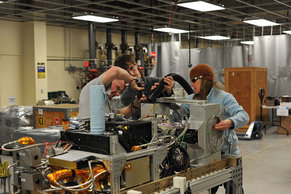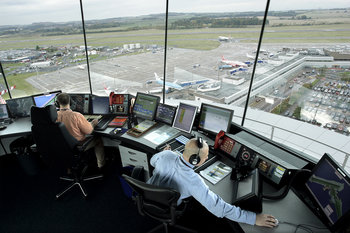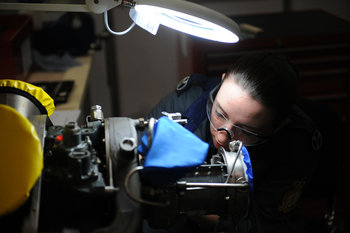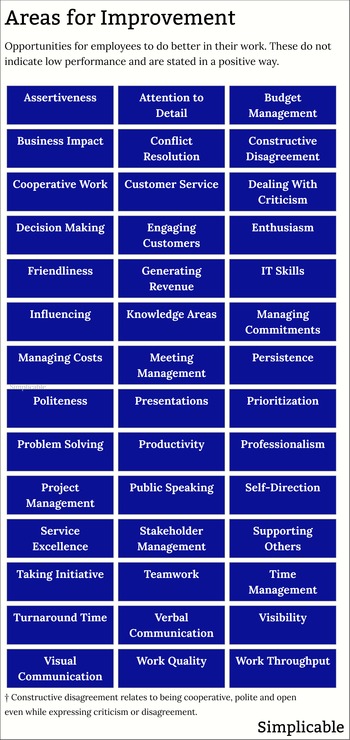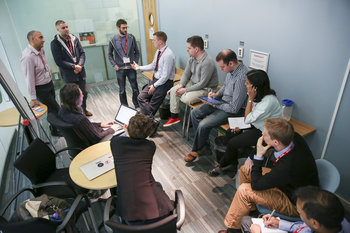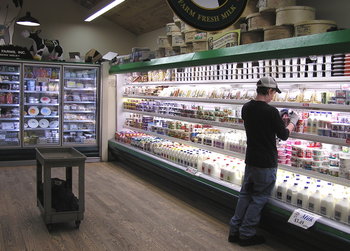
Crisis Handling
Crisis handling such as a flight attendant who remains calm and professional in handling an in-flight emergency.Fluid Intelligence
Fluid intelligence is the ability to solve problems in areas where you have little or no previous experience such as a passenger who can land an aircraft for the first time with voice direction from the ground.Dealing With Ambiguity
Making reasonable decisions in a timely manner where information is missing. For example, a pilot who can work out where a runway is in extremely harsh conditions of low visibility.Situational Awareness
Performance in fast moving situations that are often somewhat ambiguous but require decisive action such as a pilot who decides that a crosswind is manageable seconds before an aircraft touches down.Openness
A willingness to consider new ideas and ideas that challenge your assumptions and experience. For example, a CEO of an oil company who is willing to consider that a business model they have been using all their life is no longer feasible or sustainable.Rebelliousness
A willingness to break rules if they make no sense. For example, an algorithm engineer who ignores low value meetings they are supposed to attend because they are working on something big.Social Loafing
Social loafing is the observation that individuals often work harder on independent work than group work. This is often supposed to be a problem but can also be fully rational adaptive behavior. For example, an algorithm engineer who doesn't say much in an unstimulating meeting about HR compliance issues because they don't see what value they have to add.Comradery
Comradery is a sense of common purpose with a team such that you are willing to step in to fill gaps. For example, a hotel staff who is willing to manage the front desk suddenly with no training because the regular manager called in sick.Fake It Till You Make It
Fake it till you make it is a willingness to try things that you are unprepared to try based on the realization this is sometimes a good way to learn. For example, a learner of Japanese who is willing to step into conversations that are way over their head as a means of gaining conversational experience.Failure Resilience
The ability to bounce back from failure without loss of enthusiasm. This also implies that you take the failure seriously and try to learn from it as opposed to simply bouncing back out of denial or a narcissistic belief in your own greatness. For example, a goalie who performs terribly in one game who is able to return to full performance the next.Stress Resilience
The ability to perform under high stress. For example, a goalie who can perform after being booed by their own fans and treated coldly by teammates.Risk Taking
A capacity to take calculated risk. For example, a creative director at an advertising agency who is known for taking creative risks that often work out.Physical Adaptability
It is common for manual and technical work to require physical adaptability. For example, an elevator repair person who is comfortable working in heights, confined spaces and dusty environments.Cultural Adaptability
Cultural intelligence and the ability to adapt to different cultural expectations, norms and practices. This can include national cultures and organizational cultures. For example, an individual who has worked for a government department for many years who must adapt to the culture at an investment bank where expectations, norms and practices are completely different.Creativity
Creativity is a type of adaptive performance whereby an individual is able to overcome the obvious and cliche solutions that easily come to mind to reach beyond what other people have already figured out.Tolerance for Mediocrity
Adaptive performance is often a trade-off with other traits such as patience. For example, individuals with very high adaptive performance may be impatient with red tape, resistance to change and organizations that prioritize group harmony over performance. Some organizations are too rigid for adaptive performers such that they are likely to leave. In other words, adaptive performance is a culture as much as it is an individual capacity.| Overview: Adaptive Performance | ||
Type | ||
Definition | How well an employee performs in situations of change and uncertainty. | |
Related Concepts | ||

